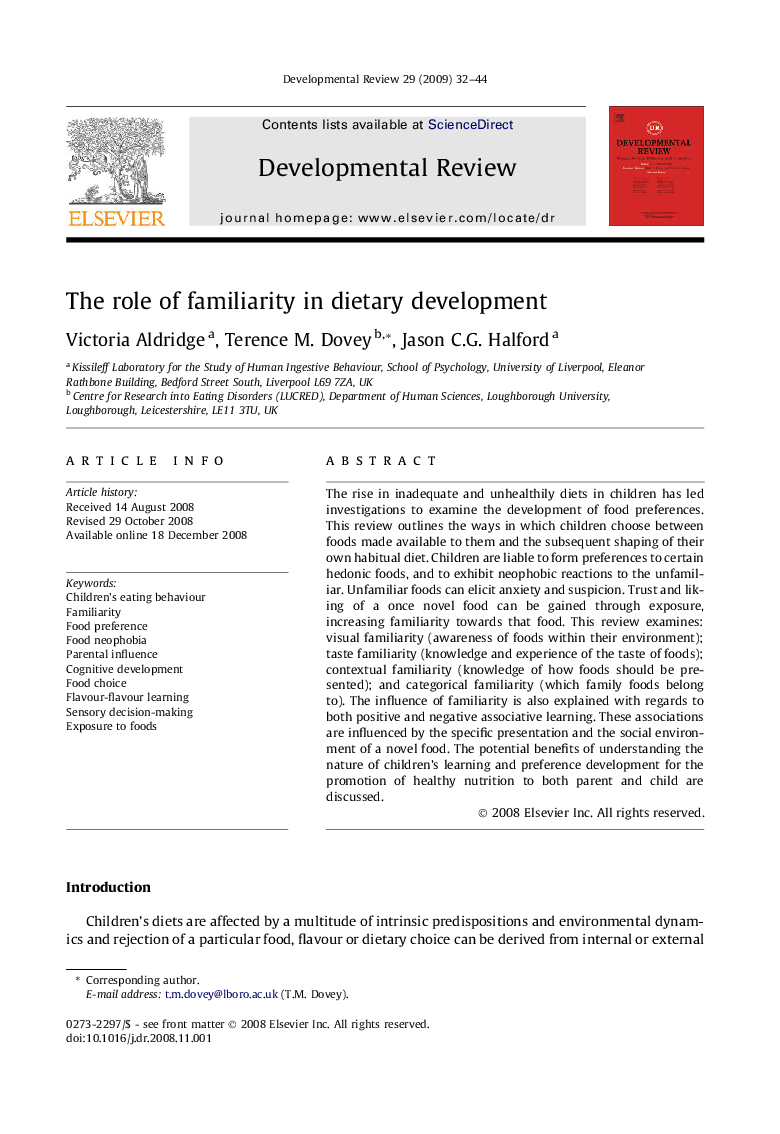| کد مقاله | کد نشریه | سال انتشار | مقاله انگلیسی | نسخه تمام متن |
|---|---|---|---|---|
| 353611 | 618837 | 2009 | 13 صفحه PDF | دانلود رایگان |

The rise in inadequate and unhealthily diets in children has led investigations to examine the development of food preferences. This review outlines the ways in which children choose between foods made available to them and the subsequent shaping of their own habitual diet. Children are liable to form preferences to certain hedonic foods, and to exhibit neophobic reactions to the unfamiliar. Unfamiliar foods can elicit anxiety and suspicion. Trust and liking of a once novel food can be gained through exposure, increasing familiarity towards that food. This review examines: visual familiarity (awareness of foods within their environment); taste familiarity (knowledge and experience of the taste of foods); contextual familiarity (knowledge of how foods should be presented); and categorical familiarity (which family foods belong to). The influence of familiarity is also explained with regards to both positive and negative associative learning. These associations are influenced by the specific presentation and the social environment of a novel food. The potential benefits of understanding the nature of children’s learning and preference development for the promotion of healthy nutrition to both parent and child are discussed.
Journal: Developmental Review - Volume 29, Issue 1, March 2009, Pages 32–44